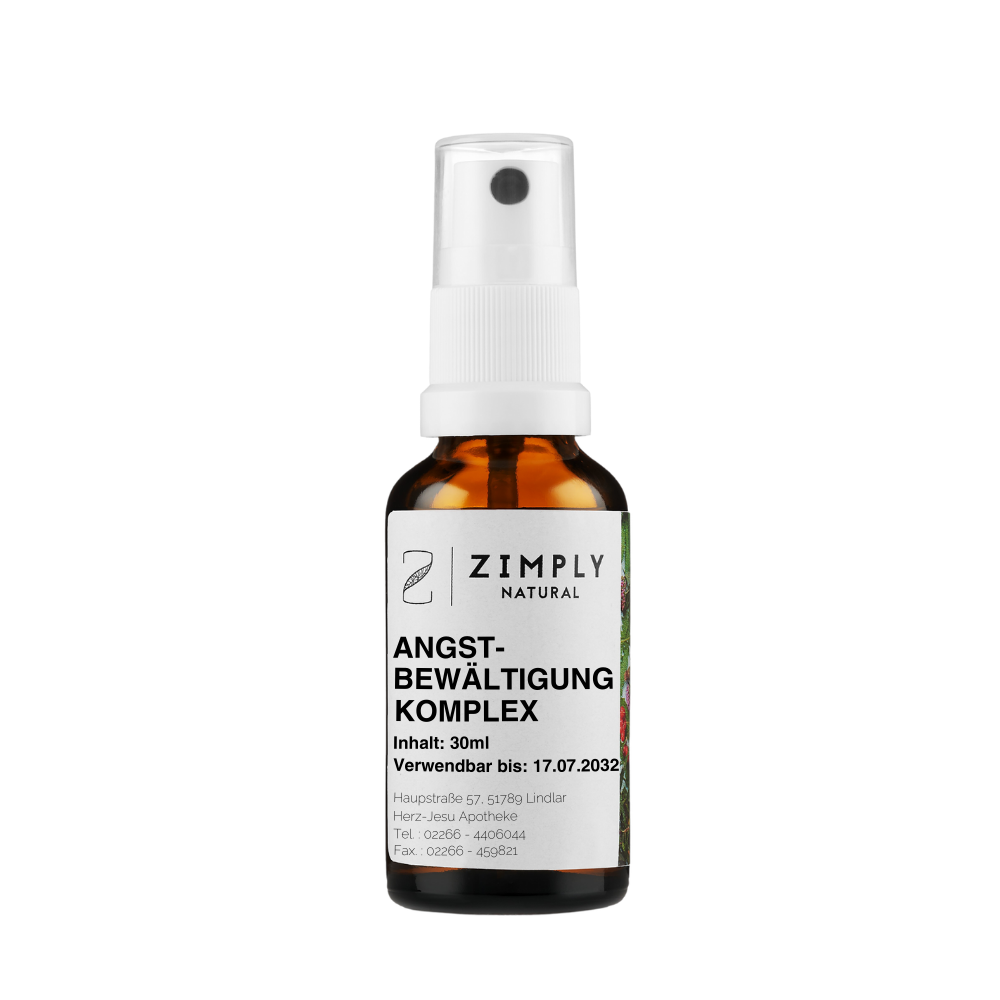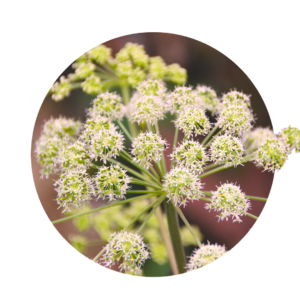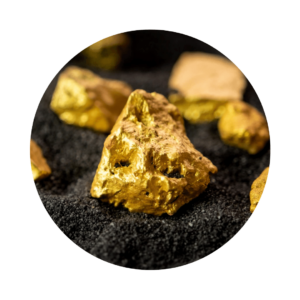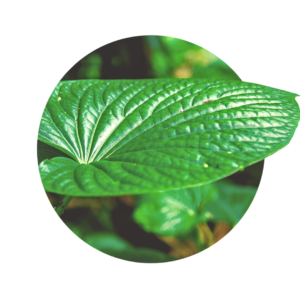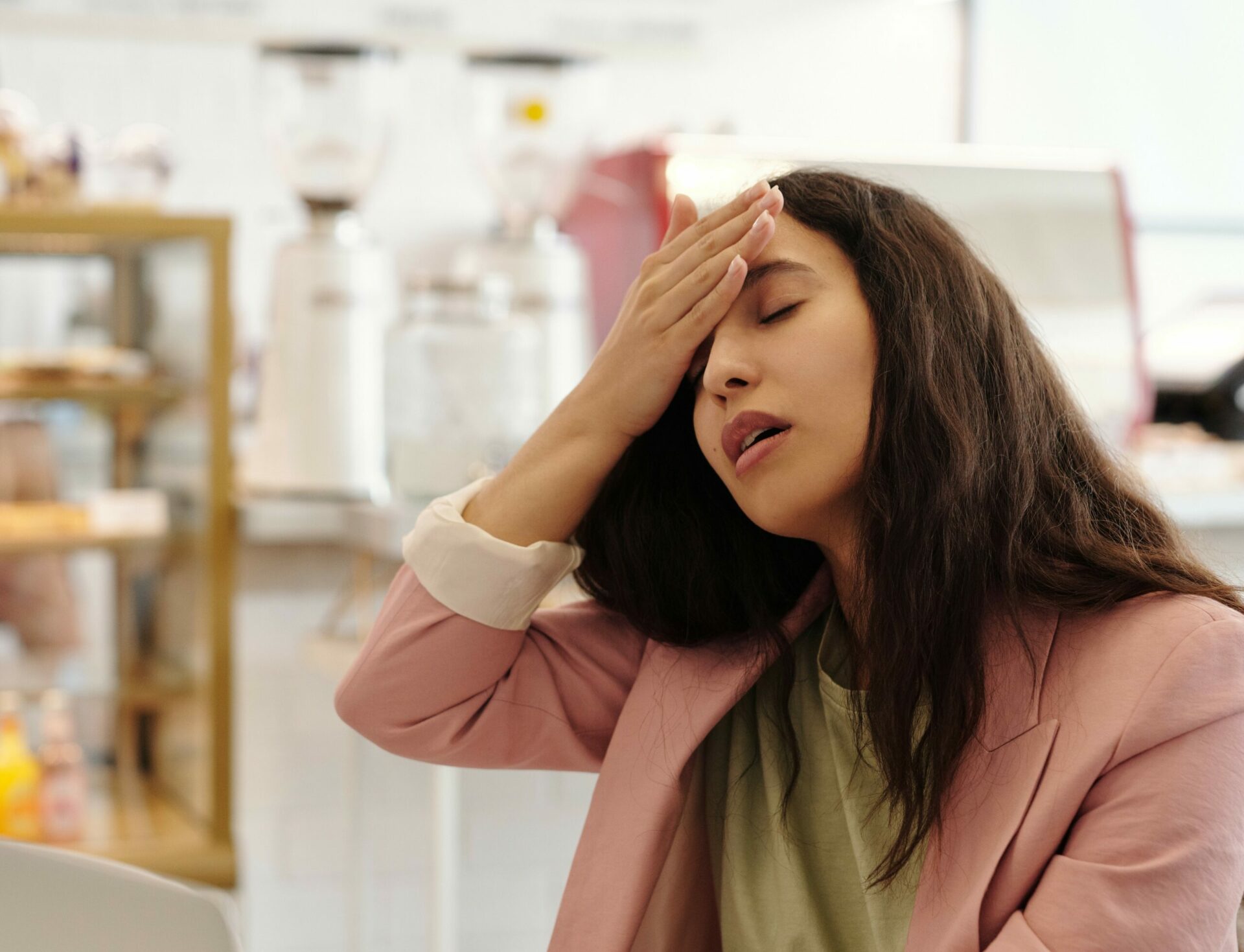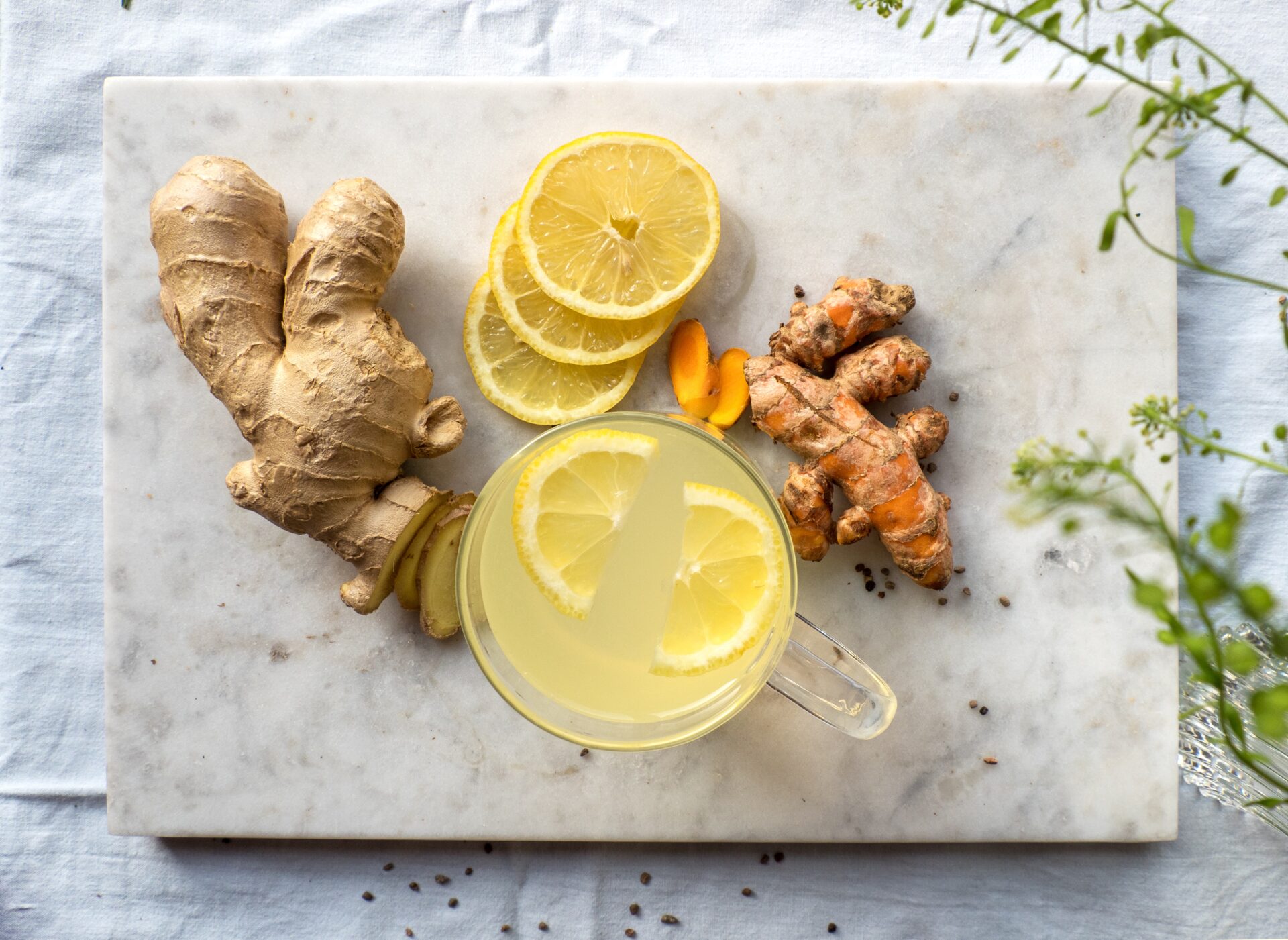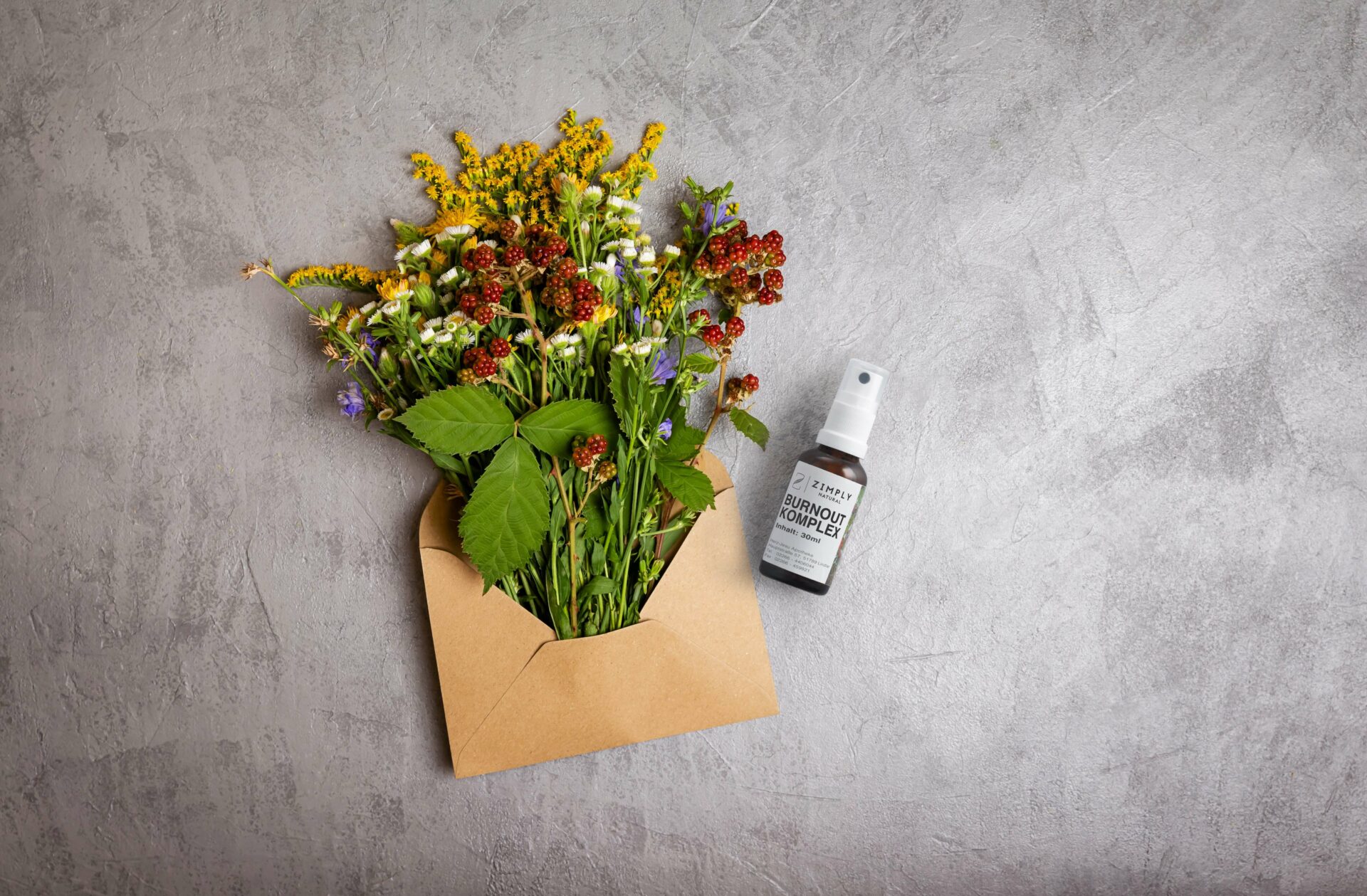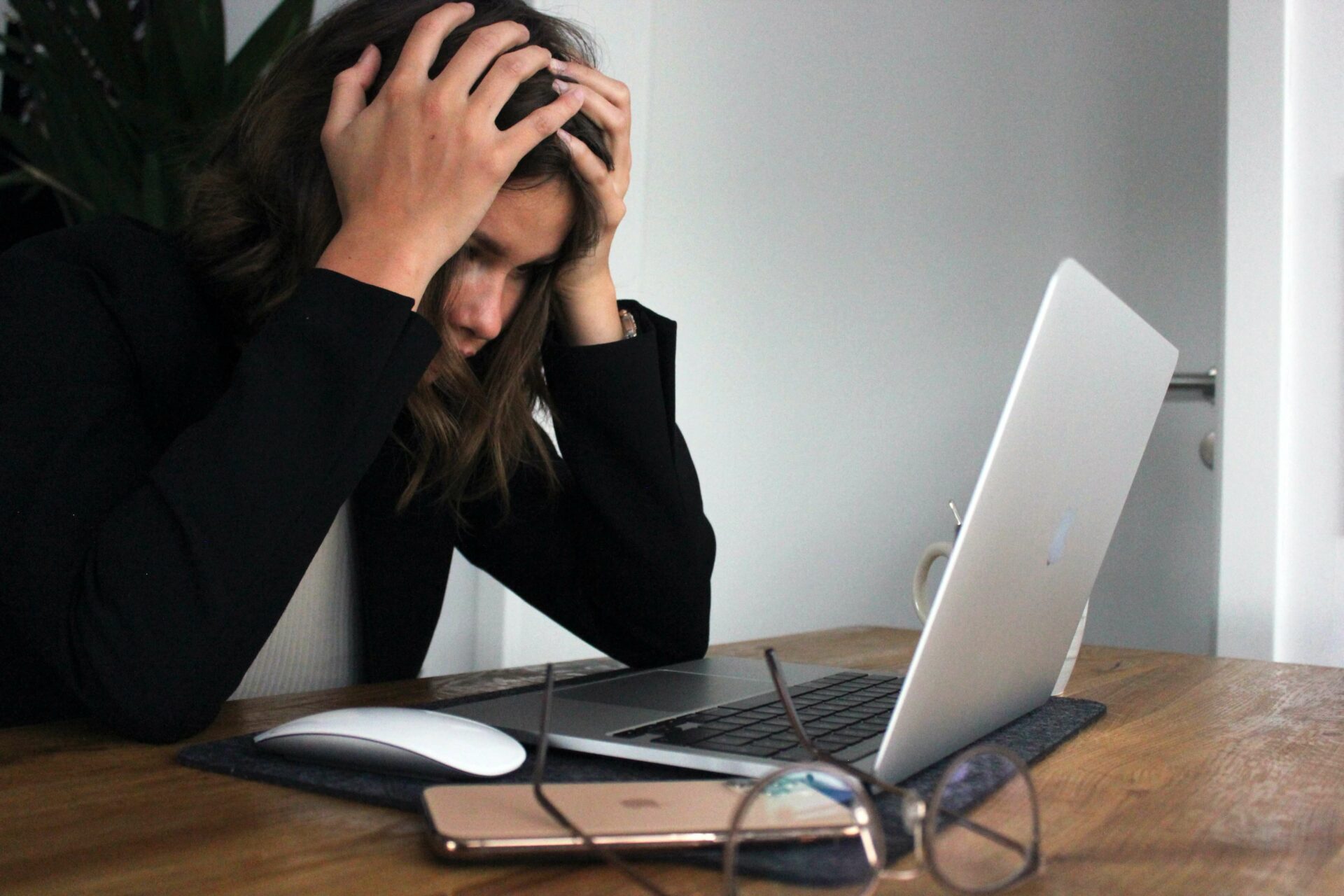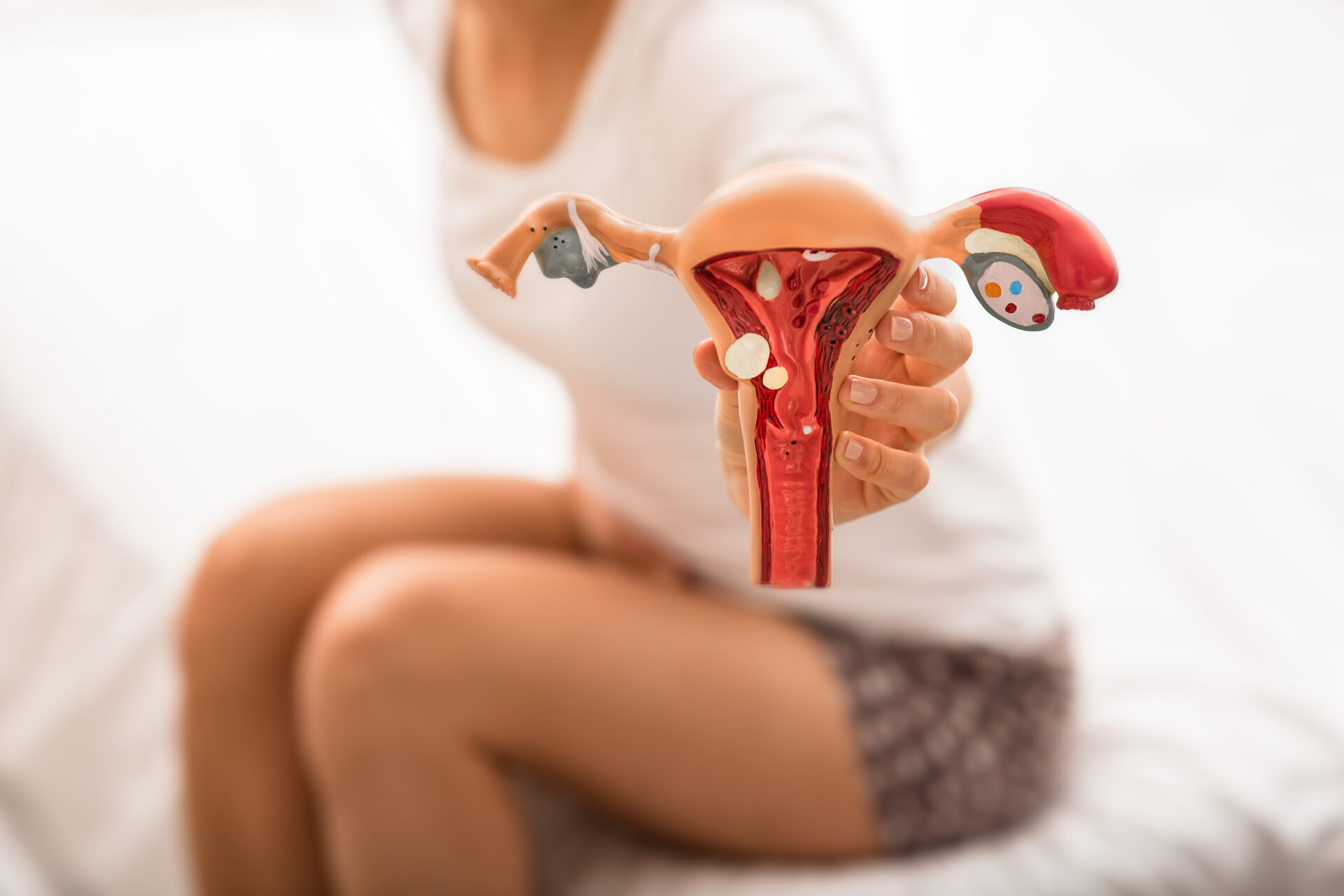Anxiety - everyone knows it, some are more and some less affected by it. A completely normal emotion that also has its evolutionary purpose. But what happens when anxiety takes over and dominates your everyday life? When everyday situations cause you enormous stress and you are restricted in what you can do? Then we hope that we can help you overcome your anxiety with this article.
With natural methods, such as the individual spagyric mixtures from Zimply Natural, your complaints can be relieved naturally and sustainably.
Table of contents
- What are everyday fears anyway?
- These are possible causes and triggers of everyday anxiety
- How everyday fears can affect you
- How can you recognize if someone is in a state of anxiety and how can you help?
- Natural home remedies that can work wonders for everyday anxiety
- These exercises can help you become more mindful
- These medicinal plants can help you with anxiety in everyday life
- Zimply Natural - your natural support for everyday anxiety
- FAQ: Questions and answers about everyday anxiety
What are everyday fears anyway?
Everyday fears refer to the fears that you may encounter in everyday life and that make your life more difficult. They often revolve around the challenges and demands of everyday life or certain situations that cause you stress. In principle, anxiety is a completely normal and natural emotion. However, if it becomes persistent or excessive and interferes with everyday life, this can indicate deeper problems and anxiety disorders. The causes of anxiety in everyday life can vary from person to person and often consist of a combination of factors. These range from genetics and biology to the psyche. Traumatic events are also common causes of anxiety. It is important to know how you can deal with your fears so that they do not take over your everyday life. In the following, we will introduce you to relaxation techniques, natural home remedies and self-help options that can help you. For extreme anxiety, however, it is important to seek professional help.
That women are more frequently affected by anxiety disorders? This could be due to biological, social and cultural factors.
These are possible causes and triggers of everyday anxiety
Interpersonal and professional stress
For some people, social interactions are a major challenge and cause a lot of stress. Fear of rejection or criticism often plays a decisive role here. This fear is also often caused by the feeling that you are not living up to expectations. The whole thing can be exacerbated if you are constantly aware that you are not living up to expectations. In most cases, this does not even correspond to reality. This situation can of course also be transferred to the workplace, where negative feelings can be intensified by conflicts. In general, your discomfort probably often leads to the feeling that you are unable to adapt in social situations. This can make it difficult for you to socialize. Visits to the doctor or medical examinations may also make you very anxious. You have probably already experienced extreme anxiety about bad news.
Life changes and individual stresses
Financial problems, such as money worries or the inability to pay bills or debts, can often cause anxiety. These can affect you in your everyday life if, for example, you are constantly afraid that you will no longer be able to afford certain things. This can be exacerbated by the fear of losing your job. Financial instability can also be very stressful, especially if job market conditions are uncertain. Regular expenses such as rent, mortgages or bills can lead to high pressure, especially if the financial situation is tight. In such circumstances, major changes such as moving house, changing jobs or the end of a relationship can be extremely frightening. Another everyday anxiety situation can be driving, for example if you suffer from driving anxiety or have even had an accident. However, this anxiety can also arise in other forms of transportation if you are worried about safety. This can include cars, airplanes or public transport.
That anxiety disorder is one of the most common mental disorders? Approximately 12.9% of the world's population suffer from an anxiety disorder at least once in their lives.
How everyday fears can affect you
How anxiety affects your body
Your body can react very differently to anxiety. The most common symptom of anxiety is a racing heart, which can be exacerbated by the stress of the situation. Shallow breathing, sweating and shortness of breath can also occur. In extreme cases, such a state of anxiety can also lead to panic attacks. Due to the tension, your body or parts of your body may start to tremble or tense up. This often leads to tension headaches or gastrointestinal complaints such as nausea, diarrhea or stomach pain. In the long term, anxiety symptoms can worsen your sleep, as complaints such as problems falling asleep or sleeping through the night, restless sleep or nightmares can occur. This can have a major impact on your quality of life, which is why it is important to take your anxiety seriously.
These are the emotional symptoms of anxiety
In addition to the physical effects of anxiety, there are a variety of emotional symptoms that can accompany anxiety situations. Nervousness and inner restlessness, for example, can lead to a constant feeling of tension, which can make you more irritable. In the event of sensory overload, such feelings can develop into a panic attack, which can also exacerbate the anxiety afterwards. Thoughts about everyday things and constant brooding can also lead to stress and tension. These negative emotions can have a negative impact on interpersonal relationships, which in turn can lead to feelings of rejection. Feelings of being overwhelmed can also sometimes make it seem impossible for you to cope with the demands of everyday life. Fears for the future represent an additional burden, as these can be very pronounced due to fear of losing control or the unknown.

The application of your Anxiety management sprays iBy the way, the treatment is very simple: the spray is simply sprayed into the mouth according to the dosing instructions on the bottle. In order to achieve the best possible effect and to be able to optimally counteract the causes, we recommend using it over a longer period of six to eight weeks. As a kind of cure, spray 3×3 sprays daily.
How can you recognize if someone is in a state of anxiety and how can you help?
Anxiety can actually be recognized relatively quickly and is usually harmless. Nevertheless, you should try to reassure the person concerned, because in some cases fear can quickly turn into panic. In the case of sensory overload Panic attacks and these are even more stressful than anxiety. Symptoms that your partner is in a state of anxiety include trembling, accelerated heartbeat and sweating. Shallow breathing or sudden nausea can also occur. If you suspect that someone is anxious, you can help them by listening carefully. Showing understanding and offering support are also good approaches. Also offer to do breathing exercises with the person to calm them down. First and foremost, it is important that you are there and make it clear that you are taking the problems seriously.
Natural home remedies that can work wonders for everyday anxiety
One of the most tried and tested home remedies is and remains tea, as it has a soothing and calming effect from the inside out. Chamomile tea can really help to relieve tension, while valerian tea promotes restful sleep. Passionflower tea can calm your nerves and has anxiety-relieving properties. Ashwagandha is a type of herb that is often used for Burnouts is recommended as it is said to have stress-reducing properties. Another special medicinal plant is roseroot, which is used for mental stress and is also used for Covid-19 can be recommended to others. Lavender oil can either be applied topically or to the skin or used as aromatherapy. It is known for its calming properties and also has a great aroma. In terms of nutrition, foods rich in omega-3 fatty acids and magnesium are recommended. The former are mainly found in fish oil, linseed and nuts. Magnesium-rich foods include dark leafy vegetables, nuts and wholegrain products. Probiotics such as yogurt and sauerkraut can support your intestinal flora and promote a positive mood.
That long-term anxiety problems can affect your health? The likelihood of developing heart disease, diabetes or a gastrointestinal disorder can increase.
These exercises can help you become more mindful
Exercises to control your breathing and your body
Breathing exercises can be very good for grounding you a little in stressful situations. But they also have a great effect during panic attacks. Try to concentrate on breathing in and out deeply and consciously. You can use the 4-7-8 breathing technique as a guide, in which you first breathe in through your nose for four seconds. Then hold your breath for seven seconds until you exhale for eight seconds. Make a kind of "whoosh" sound with your lips pressed together. Repeat this process four times, ideally twice a day. To release tension from your body, you can try the body scan. This involves taking time to consciously feel your body and pay attention to any tension or discomfort. Consciously relax each muscle and release tension where it is not needed. Progressive muscle relaxation works in a similar way. Here you gradually tense and relax the muscles in your body.
Practices for mental strengthening
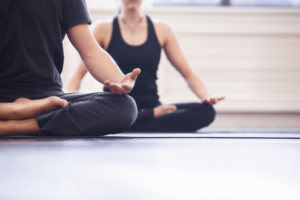
Meditation can really help you to find your center and calm yourself down. To do this, sit in a quiet place, close your eyes and concentrate on your breathing. One yoga mantra that is very popular is "So Ham", which means "I am". The mantra is not linked to any religion and can be combined well with inhaling and exhaling. If you are in a place where you cannot meditate, visualization is a good alternative. This involves closing your eyes and imagining a calming scene. This could be your favorite beach from your vacation or the forest from your last walk, for example. Feel the peace and relaxation of this moment. Another tip is to keep a diary in which you can record your day and your feelings. This will allow you to reflect on what is bothering you and how you can deal with it.
These medicinal plants can help you with anxiety in everyday life
Angelica supports the activity of all digestive glands and optimizes the absorption of nutrients. A liver that does not have to overburden itself with digestion and the absorption of nutrients has the capacity to take care of its other hundreds of metabolic processes. This relief of the digestive system means that the body is less 'strained' and has more strength and energy left over. You feel fit, healthy and vital. This is why it is said that the liver creates vital energy from food. Bitter makes the liver happy, heart and soul happy!
Very well known is Mugwort for its ability to promote fat digestion. It stimulates the liver to produce more bile and the pancreas to release more fat-splitting enzymes. This combination is still used in traditional cuisine today. Fatty roasts are therefore seasoned with dried mugwort - and it tastes great too!
Aurum brings light back into the system as the metal of the sun. It also helps with depressive moods, as darkness spreads through the system and melancholy gains the upper hand. Aurum strengthens the connection to the self, gives trust and confidence and thus helps to overcome the dark phase.
Nervous exhaustion is usually preceded by massive, prolonged stress. During this stress, the stores of B vitamins, iron, zinc and magnesium are depleted. Oat is the perfect plant to replenish those empty stores, as it contains everything the nervous system needs to function properly.
Hemp is relaxing. Whether mental or physical tension, cannabis reduces stress levels and relaxes. Recent studies have shown that cannabis acts in the brain where anxiety arises. It reduces this process and makes people more relaxed. Hemp can also have a euphoric effect. By reducing pain and anxiety, hemp causes enthusiasm to rise, which makes you happy and confident. Some even feel invincible and decide to make big changes.
Copper is the metal of Venus and Cuprum sulfuricum has antispasmodic properties. Voluntary and involuntary muscles relax, colic and muscle cramps subside. However, cramps can also be of emotional origin and associated with stress. Here too, Cuprum sulfuricum relaxes and brings lightness back into the system.
The effect of Kava-Kava is described as being similar to benzodiazipines. Its relaxing and anxiolytic effects on a physical and psychological level reduce anxiety and restlessness. However, no short-term results are to be expected. In the studies, kava kava had to be taken for about a week before the first effects could be felt. The maximum effect was reached after approx. 4 weeks. The great advantage of kava kava is that it works well but does not cause any dependency.
Zimply Natural - your natural support for everyday anxiety
With Zimply Natural, we are the antidote to painkillers, sleeping pills, and standard medications. We are your medicine! For our mixtures we use the centuries-old natural healing method of spagyric back. The Spagyric combines the herbal active ingredients and phytotherapeutic elements of the HealingplantsThe mineral salt qualities, as well as the subtle information of the medicinal plants and the energetic potential of the Bach flowers.
With natural methods, such as the individual spagyric mixtures from Zimply Natural, your complaints can be relieved naturally and sustainably.
FAQ: Questions and answers about everyday anxiety
How can you help a person in fear?
If a person is afraid, you can meet them with understanding and support. Listen actively and make it clear that you take their fears and concerns seriously. You can also encourage the person concerned to talk about their feelings. Perhaps you can find a solution together that is comfortable for both of you. If you notice that the person is having trouble breathing calmly, you can also suggest breathing exercises.
Could your anxiety be related to experiences from the past?
Yes, anxiety or an anxiety disorder can be linked to experiences from the past. One-off or repeated traumatic experiences, such as accidents, abuse or assaults, can trigger severe anxiety and have long-term consequences. Childhood events such as bullying, domestic violence or emotional abuse can also lead to persistent anxiety and avoidance behavior. The loss of a loved one through separation or death can lead to extreme emotional wounds. Especially if those affected have not been able to cope adequately with their grief.



